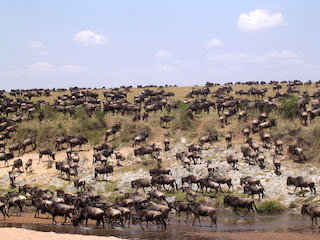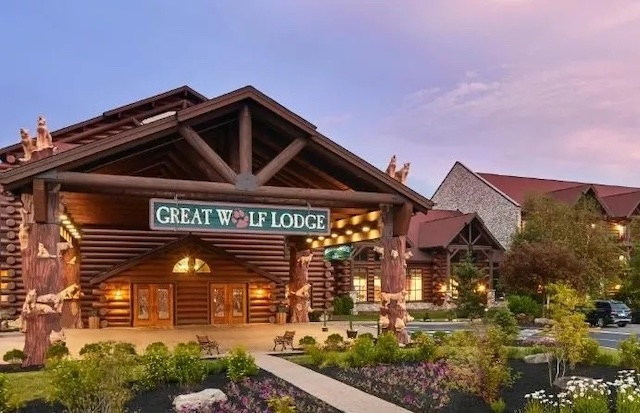10 Frequently Asked Questions About Kenya Wildlife Safaris
Kenya wildlife safaris are renowned for offering unparalleled wildlife experiences amidst stunning landscapes. However, planning a safari can raise many questions for potential travelers, from logistical concerns to understanding what to expect. This comprehensive guide addresses frequently asked questions about Kenya wildlife safaris, providing detailed insights to help you prepare for an unforgettable adventure.
1) What is a Kenya wildlife safari?
Kenya wildlife safaris are journeys through Kenya’s national parks and game reserves with the primary aim of observing and experiencing the country’s rich wildlife and diverse ecosystems. Safaris typically involve guided game drives, where visitors travel in specialized vehicles to spot animals in their natural habitats. Kenya’s safaris are famous for their incredible wildlife encounters, including the Big Five (lion, leopard, elephant, rhino, and buffalo), as well as the annual Great Migration of wildebeest and zebras.
2) When is the best time to go on a Kenya wildlife safari?
The best time to go on Kenya wildlife safaris largely depends on what you want to experience and your preferences for weather and wildlife viewing. Here’s a breakdown of the different seasons:
-
- High season (July to October): This is considered the peak safari season, especially during the Great Migration in the Maasai Mara. Wildlife sightings are abundant, and the weather is typically dry and pleasant. This is the most popular time to visit Kenya, so expect higher prices and larger crowds.
- Shoulder season (November to March): This period offers good wildlife viewing opportunities with fewer tourists. The weather can be unpredictable, with short rains from November to December and hotter temperatures from January to March. This is a great time for birdwatching, as migratory birds are present.
- Low season (April to June): This is the rainy season, characterised by heavy rains and muddy conditions. While wildlife viewing can be more challenging due to the weather, this period also offers lower prices and fewer tourists. The landscape is lush and green, which can be visually stunning.
3) How much does a Kenya wildlife safari cost?
The cost of a Kenya wildlife safari varies widely based on several factors, including the type of safari, accommodation standards, duration, and the time of year. Here’s a general idea of what to expect:
-
- Budget safaris: Typically range from $150 to $250 per person per day. These safaris offer basic accommodations and group tours, providing a cost-effective way to experience Kenya’s wildlife.
- Mid-range safaris: Generally cost between $250 and $500 per person per day. These safaris include comfortable lodges or tented camps and often feature private game drives and more personalied services.
- Luxury safaris: Can range from $500 to $1,500 or more per person per day. Luxury safaris offer high-end lodges, private safari vehicles, and exclusive experiences, including gourmet meals and additional amenities.
Keep in mind that these estimates do not include international flights, travel insurance, visas, and optional activities, which can add to the overall cost.
4) What should I pack for a Kenya wildlife safari?
Packing appropriately is crucial for a comfortable and enjoyable safari experience. Here’s a list of essential items to consider:
-
- Clothing: Lightweight, breathable clothing in neutral colors (such as beige, khaki, and olive) is ideal for safaris. Avoid bright colors and patterns that might disturb wildlife. Pack long sleeves and pants for protection against sun and insects. A light rain jacket is also useful.
- Footwear: Comfortable, sturdy walking shoes or hiking boots are essential for game drives and walking safaris. Sandals or flip-flops are useful for relaxing at lodges or camps.
- Accessories: A wide-brimmed hat, sunglasses, and sunscreen are important for sun protection. A good pair of binoculars enhances wildlife viewing, and a camera with a zoom lens is essential for capturing wildlife moments.
- Health and safety: Bring a basic first aid kit, insect repellent, and any personal medications. Malaria prophylaxis might be recommended depending on the safari region.
5) What can I expect during a Kenya wildlife safari?
During a Kenya wildlife safari, you can expect a variety of experiences, including:
-
- Game drives: These are the primary activity on most safaris. You will travel in specially designed safari vehicles, often with a guide who provides commentary and helps spot wildlife. Game drives typically take place early in the morning and late in the afternoon when animal activity is highest.
- Guided walks: Some safaris include guided walking tours where you explore the bush on foot with a trained guide. This offers a different perspective on wildlife and the environment.
- Cultural visits: Many safaris incorporate visits to local communities, such as Maasai villages, where you can learn about traditional cultures and lifestyles.
- Optional activities: Depending on your itinerary, you might have the opportunity to participate in additional activities such as hot air balloon rides, bush breakfasts, or night drives.
6) Are Kenya wildlife safaris safe?
Safety is a priority on Kenya wildlife safaris. Here are a few key points to consider:
-
- Safari vehicles: Safari vehicles are designed for safety and comfort, with trained drivers and guides who are experienced in navigating wildlife areas. Vehicles are usually open-sided for better viewing but have protective bars and other safety features.
- Health precautions: Ensure you follow health recommendations, such as vaccinations and malaria prophylaxis. It’s also important to drink bottled water and adhere to food safety guidelines.
- Wildlife encounters: While wildlife encounters are a highlight of safaris, it’s essential to follow your guide’s instructions and maintain a safe distance from animals. Guides are trained to manage wildlife interactions and ensure your safety.
- Travel insurance: Comprehensive travel insurance that covers medical emergencies, trip cancellations, and evacuation is highly recommended.
7) What type of safari accommodation is available?
Kenya offers a range of accommodation options to suit different preferences and budgets:
-
- Camping: Budget and mid-range safaris often include camping, with options ranging from basic campsites to more comfortable semi-luxury tented camps. Camping provides a close-to-nature experience and is often more affordable.
- Lodges: Mid-range and luxury safaris typically feature lodges, which offer more comfort and amenities. Lodges can vary from simple to luxurious, with features such as en-suite bathrooms, dining areas, and swimming pools.
- Tented camps: Luxury safaris frequently include tented camps that combine the excitement of camping with high-end comforts. These camps often have spacious tents with private bathrooms and offer personalised service.
8) How do I choose the right Kenya wildlife safari?
Choosing the right Kenya wildlife safari depends on your preferences, interests, and budget. Consider the following factors:
-
- Safari type: Decide whether you prefer a budget, mid-range, or luxury safari. Each type offers different levels of comfort, exclusivity, and inclusivity.
- Destination: Kenya has diverse safari destinations, including the Maasai Mara, Amboseli, Samburu, and Lake Nakuru. Research each location to determine which aligns with your interests, such as the Great Migration, big game viewing, or birdwatching.
- Duration: Determine how long you want to spend on safari. Shorter safaris (3-5 days) provide a snapshot of Kenya’s wildlife, while longer safaris (7-14 days) offer a more comprehensive experience.
- Special interests: If you have specific interests, such as birdwatching, photography, or cultural experiences, choose a safari that includes these activities. Specialised safaris are available to cater to different interests and provide tailored experiences.
9) What is the impact of Kenya wildlife safaris on conservation?
Kenya wildlife safaris play a significant role in conservation by providing financial support for national parks and reserves. Safari revenue helps fund:
-
- Anti-poaching efforts: Funds are used to combat poaching and protect endangered species. Anti-poaching units and surveillance systems are supported by safari income.
- Habitat preservation: Revenue contributes to habitat restoration and management, ensuring that wildlife habitats remain intact and functional.
- Community projects: Many safari operators invest in community-based conservation projects that benefit local people and promote coexistence between humans and wildlife.
By participating in a Kenya wildlife safari, you contribute to these conservation efforts and support the protection of Kenya’s natural heritage.
10) What health precautions should I take?
Before traveling to Kenya, consult with a travel health specialist to ensure you have the necessary vaccinations and health precautions. Common recommendations include:
-
- Vaccinations: Routine vaccines, such as measles, mumps, rubella (MMR), and tetanus, should be up-to-date. Additional vaccines for Kenya may include hepatitis A, hepatitis B, typhoid, and possibly yellow fever, depending on your travel itinerary.
- Malaria prophylaxis: Depending on the region you visit, malaria prophylaxis may be recommended. Consult with your healthcare provider for the best options.
- Travel insurance: Ensure you have comprehensive travel insurance that covers health issues, including medical evacuation if necessary.
Enjoy your Kenya wildlife safari
Kenya wildlife safaris offer a remarkable opportunity to experience the beauty and diversity of Kenya’s wildlife and landscapes. Understanding the frequently asked questions about Kenya wildlife safaris can help you prepare effectively and make the most of your adventure. From choosing the right safari type and accommodations to understanding health precautions and conservation impacts, careful planning ensures a memorable and enriching safari experience.
By addressing these common concerns, you can prepare and embark on your Kenya wildlife safari with confidence, to enjoy the breathtaking wildlife encounters, cultural insights, and personal growth that this extraordinary journey offer.





